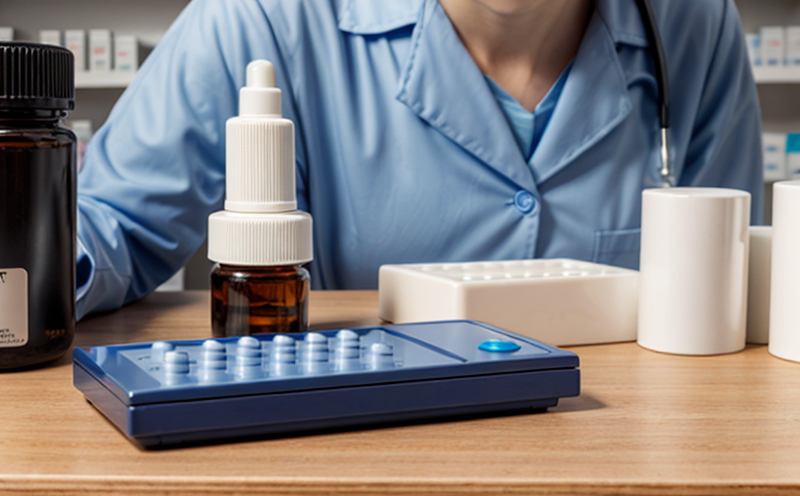Pharmaceutical Intellectual Property (IP) Compliance: A Critical Aspect of the Industry
The pharmaceutical industry is one of the most highly regulated sectors globally, with intellectual property (IP) compliance being a critical aspect of its operations. Pharmaceutical companies invest heavily in research and development (RD), investing billions of dollars to bring new products to market. However, with great investment comes great responsibility, and IP compliance is essential to protect these investments.
The Importance of IP Compliance
Pharmaceutical IP includes patents, trademarks, copyrights, and trade secrets. Each type of IP plays a vital role in protecting the rights of pharmaceutical companies and safeguarding their innovations. IP compliance ensures that companies can prevent unauthorized use or copying of their products, preventing counterfeiting, and maintaining market exclusivity. This, in turn, protects the reputation of the company and its products.
IP compliance is also essential for ensuring patient safety. Counterfeit medications are a significant threat to public health, as they may contain adulterated or ineffective active ingredients. In 2013, the World Health Organization (WHO) estimated that up to 30 of medicines sold in some developing countries were counterfeit. IP compliance helps prevent such scenarios by protecting legitimate products and deterring counterfeiting.
Key Aspects of Pharmaceutical IP Compliance
Pharmaceutical companies must adhere to various regulations, guidelines, and best practices to ensure IP compliance:
Patent protection: Patent applications for pharmaceuticals are often complex and require specialized expertise. Companies must carefully document their inventions, conduct thorough searches, and navigate the patent offices application process.
Trademark protection: Trademarks protect the brand identity of a product or company. Pharmaceutical companies must register their trademarks with relevant authorities to prevent unauthorized use or copying.
Types of trademarks: word marks (e.g., Xyrem), logo marks (e.g., logos), and combination marks (e.g., words and logos combined).
Trademark registration process: searching existing trademarks, filing an application, waiting for examination, and responding to office actions.
Copyright protection: Copyrights protect original works of authorship. Pharmaceutical companies must obtain copyright registrations for their written materials, such as product labeling, marketing materials, or instructional guides.
What is eligible for copyright: original works of authorship, including literary, dramatic, musical, and artistic works.
Benefits of copyright registration: public notice of ownership, protection against unauthorized copying, and potential damages in case of infringement.
Trade secret protection: Trade secrets protect confidential information that has commercial value. Pharmaceutical companies must implement robust security measures to safeguard their trade secrets.
What is eligible for trade secret protection: any confidential business information that is not publicly known or accessible.
Best practices for trade secret protection: limiting access, using non-disclosure agreements (NDAs), and implementing data encryption.
QA on Pharmaceutical IP Compliance
Q: What are the most common types of IP infringement in the pharmaceutical industry?
A: Counterfeiting, patent infringement, trademark infringement, and copyright infringement are all significant concerns for pharmaceutical companies. Counterfeit products can be particularly damaging as they may contain adulterated or ineffective active ingredients.
Q: How do I determine whether a product infringes on my companys IP rights?
A: To establish infringement, you must demonstrate that the infringing party has copied or used your protected work without permission. This typically involves conducting thorough research and analysis of the alleged infringement.
Q: What are some best practices for maintaining IP compliance in a global supply chain?
A: Companies should implement robust quality control measures, monitor third-party vendors closely, and conduct regular audits to ensure adherence to regulations. Additionally, companies must maintain accurate records of all transactions and interactions with suppliers.
Q: How do I protect my companys trade secrets from being leaked or stolen by employees?
A: Implementing non-disclosure agreements (NDAs) for new hires, contractors, and third-party vendors is essential. Companies should also limit access to confidential information, use data encryption, and conduct regular security audits.
Q: What are the consequences of failing to comply with IP regulations in the pharmaceutical industry?
A: Failure to comply can result in fines, penalties, and reputational damage. In severe cases, non-compliance may lead to product recalls or even complete market withdrawal.
Q: How do I determine which type of IP protection is best suited for my companys needs?
A: It depends on the specific goals and objectives of your company. Consulting with a qualified IP attorney can help you navigate the complex landscape of pharmaceutical IP and ensure that your companys unique needs are met.
Conclusion
Pharmaceutical IP compliance is an essential aspect of protecting a companys investments, reputation, and patient safety. Companies must adhere to various regulations, guidelines, and best practices to prevent counterfeiting, patent infringement, trademark infringement, and copyright infringement. By staying informed about the complex laws and regulations surrounding pharmaceutical IP, companies can safeguard their innovations and maintain market exclusivity.

































